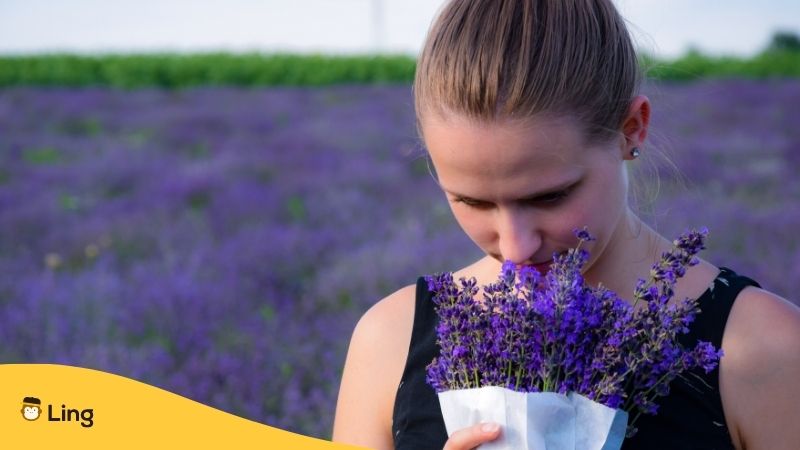When it comes to how we perceive the world around us, our senses play a vital role, and this time we will embark on a linguistic journey through the five senses in Serbian. From sight to taste, sound to touch, and even smell, Serbian offers us a plethora of vocabulary and phrases that beautifully express our sensory experiences. So, let’s dive into the world of senses and stimulate our linguistic nerve receptors!
5 Senses In Serbian
Sight (Vid)
As the sense that provides us with the most information about our surroundings, sight holds a special place in the perception of our lives and the knowledge of, and our relationship with, what is going on around us. Around 80 percent of the impressions we make of our environment come through our eyes. Sight is definitely a boon when reading blogs like this, for that matter!
Here are some beautiful words in Serbian to do with sight:
Lepota (beauty)
Serbia is known for its breathtaking geography, landscapes, and stunning architecture. Whether it’s the majestic mountains or the picturesque countryside, Serbian scenery is a feast for the eyes.
Boje (colors)
the Serbian language offers a vibrant palette of colors. From the bright and cheerful “žuta” (yellow) to the cold, deep, and mysterious “crna” (black), each color carries its own significance and symbolism.
Svetlost (light)
The interplay of light and shadow has always fascinated artists and poets. The Serbian language has a word, “svetlost,” which encapsulates this idea of the radiance and luminosity that illuminate our world.
More Sight-Related Vocabulary
| English | Serbian | Transliteration |
| View | Поглед | Pogled |
| Vision | Висион | Vision |
| Eye | Еие | Eie |
| Observe | Посматрајте | Posmatrajte |
| Distinguish | Разликовати | Razlikovati |

Hearing (Sluh)
The ability to hear allows us to enjoy the melodies of nature, the rhythmic beats of music, and the harmonious symphony of everyday life. Learning a new language like Serbian heavily relies on being able to hear the nuances of vocabulary. ‘Hear’ are a few sound-related words:
Zvuk (sound)
“Zvuk” is a fundamental concept in Serbian, encompassing all types of sounds. Each sound evokes different emotions and sensations, from the gentle tinkling of bells (zvonjava) to the roaring thunder (grom) of wind during a storm.
Pesma (song)
Music is an integral part of Serbian culture, and “pesma” refers to both songs and poems. Serbian traditional folk songs, known as “narodna muzika,” carry stories of love, history, and tradition, touching the hearts of listeners.
Šapat (whisper)
Sometimes, the most profound words are spoken softly. The Serbian word “šapat” captures the intimacy and tenderness of a whisper, evoking a sense of closeness and secrecy.
More Hearing-Related Vocabulary
| English | Serbian | Transliteration |
| Ear | Еар | Ear |
| Loud | Гласно | Glasno |
| Quiet | Тиһо | Tiho |
| Listen | Слушај | Slušaj |

Taste (Ukus)
Taste allows us to savor the flavors of different cuisines, relishing the richness and variety of culinary experiences. So, let’s take a big swig of a few delicious Serbian words, swill them about in our mouths, and spit them out:
Ukusno (tasty)
Serbian cuisine is renowned for its rich flavors and hearty dishes. Whether it’s the savory taste of “ćevapi” served up in a restaurant in Novi Sad or the indulgent sweetness of “krofne” (doughnuts) from a street stall in Belgrade, the word “ukusno” perfectly captures the deliciousness of Serbian food.
Kiselkast (sour)
From the tangy notes of “kiselo mleko” (yoghurt) to the refreshing taste of “limun” (lemon), Serbian encompasses a range of sour flavours that exist to contrast and add a delightful zingy dimension to culinary delights.
Osećaj (sensation)
Beyond the basic tastes, the Serbian language goes beyond to express the overall sensory experience of eating. The word “osećaj” encompasses the diverse sensations we feel when enjoying a meal, from the texture to the aroma.
More Taste-Related Vocabulary
| English | Serbian | Transliteration |
| Sweet | Свеет | Sveet |
| Bitter | Горко | Gorko |
| Delicious | Укусно | Ukusno |
| Flavour | Укус | Ukus |
| Eat | Једи | Jedi |
| Drink | Пиће | Piće |
Touch (Dodir)
The sense of touch connects us to the physical world through our myriad nerve endings all over our bodies, allowing us to experience textures, temperatures, and comforting personal social interactions with others. It is the first of all the senses the human embryo develops, and by transmitting messages, the sensation on our skin tells our brain what is happening all around us. Here are a few touch-related words to hold on to.
Mekan (soft)
Whether it’s the touch of a warm gentle breeze (nežan povetarac) or the feel of a soft blanket against our body (meko ćebe), the word mekan describes the comforting and pleasant sensation of something soft.
Grub (rough)
On the other end of the spectrum, the Serbian language also acknowledges the tactile experience of roughness. The word grub encompasses the sensation of rough textures, such as coarse sand (grubi pesak) or rough bark (gruba kora).
More Touch-Related Vocabulary
| English | Serbian | Transliteration |
| Feel | Осетити | Osetiti |
| Caress | Царесс | Caress |
| Kiss | Кисс | Kiss |
| Tickle | Тицкле | Tickle |
| Fondle | Нежно | Nežno |
| Grope | Опипати | Opipati |
| Hard | Тешко | Teško |

Smell (Njuh)
The sense of smell is closely linked to memory and emotion, capable of evoking nostalgia and transporting us to different times and places. Imagine sensing Belgrade and its city atmosphere as you explore the streets on a sunny day and being able to conjure up the experience years later the moment your brain becomes aware of a distinctive smell that stimulates a memory transporting you back to the country’s capital. Breathe deeply, and let’s take in a few fragrant Serbian words to do with smell:
Miris (scent)
From the aroma of freshly brewed kafa (coffee) to the sweet fragrance of cveće (flowers), the word miris encapsulates the olfactory sensations that enrich our daily lives.
Osvežavajući (refreshing)
Sometimes, a scent can invigorate our senses and uplift our spirits. Serbian has the word osvežavajući to describe the refreshing smell of, for example, a zeleni čaj (green tea) or a sveža limunada (fresh lemonade).
Neprijatan (unpleasant)
Not all smells are pleasant; the Serbian language acknowledges this with the word neprijatan. It captures the unpleasant or foul odours that we encounter in our surroundings, reminding us of the importance of our olfactory senses.
More Smell-Related Vocabulary
| English | Serbian | Transliteration |
| Scent | Мирис | Miris |
| Nose | Нос | Nos |
| Sniff | Снифф | Sniff |
| Smelly | Смрдљиво | Smrdljivo |
| Fragrant | Мирисна | Mirisna |
| Perfume | Парфем | Parfem |
Get In Touch With Your Five Senses In Serbian With Ling
Learning a new language like Serbian with the Ling app is the perfect way to employ your senses to improve your linguistic skills. With more than 60 languages to choose from with courses, quizzes, and games created by native speakers, Ling app is quickly becoming the number one language learning app for those who want to learn while on the go. Ling app allows you to learn at a pace that suits you. Why not give Ling a go today by clicking on Google Play or App Store?






























